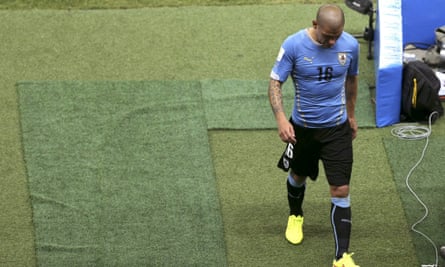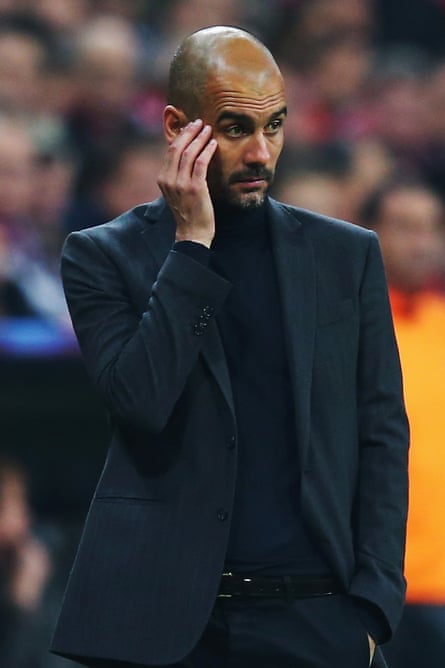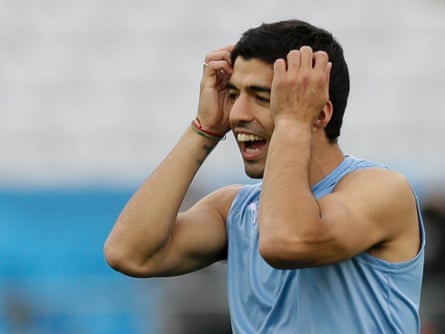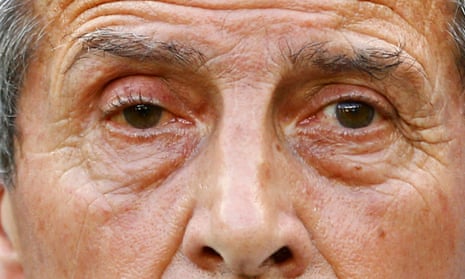The following is an extract from Martin Mazur’s article from Issue Eleven of the Blizzard, published in December 2013. The Blizzard is a quarterly football journal available from www.theblizzard.co.uk on a pay-what-you-like basis in print and digital formats.
There are two things that Óscar Washington Tabárez doesn’t like: controversy and short answers. Once he agrees to an interview, he takes time to think and tries to give detailed, elaborate answers. He is in Montevideo, at the new headquarters of La Celeste, which he helped to design and build from scratch. There, members of the Under-15, Under-17 and Under-20 squads share facilities with the senior players. It’s nothing revolutionary, but for Uruguay, it is.
For Tabárez, developing the young national teams and reshaping the Uruguayan style of player was more important than the astonishing results he achieved in his second spell as Uruguay manager, including the fourth place in the World Cup in 2010 and victory in the Copa América in Argentina 2011. As he prepares for the 2014 World Cup, his new project is to improve the network of talent scouts in the rest of the country, as most of the clubs are based in Montevideo. Tabárez, now 66, thinks of the present day but is also fixated on the future. Before being appointed by the Uruguayan federation, he’d been unemployed for four years and many people thought he had retired after a long and illustrious career that took in spells at Peñarol, Boca Juniors, AC Milan, Cagliari, Real Oviedo and Vélez Sarsfield, as well as leading Uruguay at the 1990 World Cup.
His idea was to act not just as an emergency pilot in the turbulence of the qualifiers; he instead asked for a role that took in all aspects of the playing side of the game. An admirer of the youth set-up that José Pekerman had implemented in Argentina from 1995, when he took over he started working on an integrated project based on youth development. While other national managers admit that it can be frustrating, or boring, to wait until they can finally train with the team for three or four days, Tabárez works full-time supervising the work of the youth teams, each of which has its own coach. His presence is Papal. He is revered and admired for his humbleness and polite manners, but also respected for the professionalism he exudes. Tabárez is the man you just can’t let down.
Is this your best moment since you became a manager? It seems that everybody in Uruguay is happy with you at the helm.
In the past years I’ve felt a recognition, something like a positive feedback, that is unprecedented in my country. The only thing that could compare to this is what I experienced with Boca fans after winning the Apertura in 1992, the first domestic title in 11 years. But what I consider more important, from what I hear and from what I sense, is that this recognition is beyond winning a football game. There is an image that this group of footballers that work with us has been showing in these years and that has had repercussions in all the population, the young people, the women, in sectors where football was not that important.
Is it different for you to go on the streets? Did you have to learn again what it was like to belong to the people?
It’s probably the only thing that you must adapt to, the affection they show to you. When you go out on the streets, you must be ready to cope with that and understand that perhaps things will take longer than you’d planned before leaving. But it’s something really nice that is happening to all of us and therefore it’s easy to get used to it. I wouldn’t say I’m proud, but there’s definitely an inner satisfaction in having done something we believed in, something that we were convinced of.
How important was winning, to them, and how important was winning to you?
Let’s be clear: the stories that are told through generations are usually, with a very limited number of exceptions, of those who have won something. The other stories, even if they are told, years later they are played down, making us think that they were not that important after all, because they didn’t end by achieving their main objective. Therefore, I don’t feel any different, because we’ve been working for a while in the same way. And even in times when we didn’t win, or when we couldn’t achieve a stabilisation in our performances, we kept pushing and insisting on the same concepts and guidelines. That meant that we didn’t change in order to win and, more importantly, we didn’t change our way of thinking because we were not winning. If you’re convinced of something, you must go for it.
So you hardly apply the “what if?” in your philosophy.
Actually, I do. I go through the exercise of thinking what might have happened. And I think that we could have lost a game that we won, or, as happened in the World Cup, we could have won the game we lost. This exercise is important to keep your feet on the ground and at the same time to understand that there are certain things that are not impossible, if certain conditions are in place.
You’ve always been described as down-to-earth: what’s the secret to keeping quiet when others would scream in ecstasy or agony?
You have to be subject to what reality dictates. Looking at it, interpreting it, is fundamental. If we force reality to look like something else, out of an act of vanity, or thinking that our mission goes beyond the circumstances, we’d be making our first big mistake, at least to my way of seeing and analysing the football scenario. And not just for football, but for any other activity, too. The difference is that football is full of unexpected things, so you can’t just judge the final result to understand what happened. There are lots of things that don’t depend on effort, planning or even performance. They are fortuitous and they can provoke confusion. So the only solution is to stick to reality. A strategist must do this, planning and analysis cannot start from a result: they must start from reality.
When you mention reality, the first thing you must face is numbers: Uruguay is a nation of fewer than 3.5 million people.
Exactly. The first thing that had to be done was to understand the real chances of Uruguay in the world football scenario of the present day, which is very different from the time when we enjoyed a domination of football in the first half of the 20th century, when Uruguay was never beaten in Fifa competitions. Half a century unbeaten is not for anyone, but Uruguay was another country and the relation with the rest of the countries was also different. We enjoyed supremacy not only in football but also in the democratic system, in public education, in welfare, in the sense of poverty, because being poor in those days was to eat homemade puchero [stew] every day, as opposed to certain ways of being poor today that make me feel embarrassed. So the question we asked was clear: How can we pull this off?
And what was the answer to that question?
The analysis was also clear: in a third-world country, a land that exports footballers, we had to determine a team profile. We couldn’t just live based on the glory of the past. It was enough for us to look at the best teams of the moment to see how they played and what they did. It’s as simple as that. Not just look at them, but understand them, and after that, define a footballer profile that fits in that style.
Is that why youngsters are so important in your project? Because they can be moulded into the profile that you want?
When we took over, several players from the Under-17 team were playing abroad or had just been sold to European clubs. We didn’t like it. Footballers cannot grow up alone and we believe it’s important not to interrupt the learning process. The U-15, U-17 and U-20 teams are vital in order to maintain the process. The key is to stimulate the feeling of being part of it and also to get them to know the history of our football, of La Celeste. It’s not a feeling based in an irrational faith, but in knowledge. They have to realise that there is an illustrious history and that they might be part of it, in the future, if they try hard enough and establish themselves.
Do you motivate your players by using famous quotes or phrases?
I’m an enemy of the set phrases. Sometimes I dictate to myself some guidelines and then I repeat them, as a sort of memory aid. I believe the most important things are concepts; words can differ. During training sessions, we try to apply the same football concepts in different exercises and ways of working, in order to keep variety and not make it a monotonous routine. In language, we must use the same philosophy: if you start repeating phrases, after some time they might start to lose the real meaning, and instead of having a positive impact you’d be risking creating hollow talk. I don’t like sticking notes on the walls or repeating motivational speeches. I respect those who do it, but I try to avoid being seen as a slave of fixed expressions.
Those guidelines you mentioned, can you be more specific?
Every time we meet before World Cup qualifiers, I sum up the objective of these kind of matches with three concepts: “Performance, result and behaviour”. It’s a way of summing up the image that we want to give. Performance, referring to the style and the way we want to play. Result, because it implies the work we did to achieve it and is also a guarantee we’ll act professionally towards the national team that plays against us and to all the fans that watch us. And behaviour, because it’s the way we’ve chosen and we are convinced of it.
Uruguay is known for la garra [literally “claw”, the supposedly characteristic combination of toughness and streetwiseness], the stamina of the Maracanazo [the victory over Brazil in the Maracanã that won the World Cup in 1950], but in the last decades, it had prompted more red cards and bust-ups than results. How did you change behaviour that seemed to be already established as normal?
It was important to understand that history is a huge asset but we have to understand it well. It’s true that we’ve made mistakes in the past, when a result didn’t arrive and, out of impotence, we reacted. That notoriety, which I believe was also exaggerated, was only good for the opposition, because they tried to make us react. In the last few years, I believe we have changed the tendency. In South Africa in 2010, we were the team with the fewest cards, even though we were the ones that ran most without the ball and had the best defence, according to the Fifa stats. And all this in an atmosphere of respect, to ourselves, to the rival players, to the referee and the public. Of course, football is a game and there’s always the chance of making mistakes.

How did you decide to become a football manager?
During my last years as a footballer, many friends suggested it because I was also a school teacher. I would take it just as a simple remark. But at that time, I also noticed that many young footballers tried to talk to me, to ask me for an opinion or explain some problem. And that also helped me realise that it could be a possibility. But I only decided to take the manager’s course when my football days were over, when I had no money and I needed a new source of income. After many years of playing football, I had only managed to buy a modest house. I was married and had become the father of three daughters. But I have to be honest: at the time it never crossed my mind that everything that has happened to me could have happened.
When did you realise that you actually had a future as coach?
As with most things in life, everything happened in a very casual way. I managed to be put in charge of the Bella Vista academy and from there I started doing work that slowly helped me to achieve other levels of expertise. With the help of some good results, I achieved some goals. It’s the same story for every single manager who enters in the professional world. Perhaps, those who had an illustrious career as footballers visualise the future more clearly but it wasn’t my case. I was never expecting it.
How would you describe yourself as a footballer?
The best way to put it is that I couldn’t have played in the present era. I didn’t have the physical quality or the profile needed to become a decent player, let alone a high-level player.
Your nickname is ‘Maestro’ [teacher]. Do you consider yourself a football teacher rather than just a simple manager?
I think I’m still learning. Every day, I learn something, especially when it comes to football. It’s not that I sit and give lessons to my footballers. That said, in football I believe that being a coach is also being an educator, because first and foremost you’re dealing with a group of people. Watching them face new challenges and by witnessing how some of them are way beyond the expectations you originally had set on them, I think a lot. I think of why such things happen and what special qualities they have in order to produce such an effect. In that thinking process, I learn. Some would say that’s becoming more experienced.
What is experience to you, if it’s not that?
Experience is not just waiting as time passes, if you ask me. Sometimes you associate experience with age, but there’s not an unambiguous relationship between the two. There can be young people who quickly capitalise on lots of events that are happening in their lives and there can also be old people who do not take a little time to reflect on things that are going on and, no matter their age, will never be experienced. Everything is very relative. But there is always a chance to learn, that’s for sure.
What’s the most important attribute for a coach, do you think?
One of the gifts I believe I have is to be professional. When someone offers you a contract, they expect you to coach a team and perform well. The path I take is the group philosophy: I share information, instil an atmosphere of respect and try to get the same professionalism from the people who work with me, footballers and assistants. I want that to be a distinctive feature of my squad, not just something else. The rest, football-wise, is watch, read and be informed about what’s going on and trying to be more prepared, learn a lot, to be part of the constantly changing picture that football is.
Do you follow any particular teams or league to see how football is changing?
Look, when the moment comes and I must make decisions in order to start a new project, I take into account the great teams. At the moment, other than following the clubs where Uruguayan footballers play, I also follow Barcelona, Real Madrid, Manchester City and United, the national team of Germany, of Holland, among others. I’m always trying to discover some details to enrich myself and sometimes, because it’s neither a felony nor anything illicit, use those concepts to the benefit of my own team.
Was Guardiola’s Barcelona the best team ever?
The wonderful thing about Barcelona is that the more developed football is, the more difficulties you find. So when you bump into a team that is able to maintain a total domination like they did, I have to admit that it’s the best Barcelona version I’ve ever seen. Nowadays the level of competition is superior to the past ages, when teams weren’t that good and supremacies happened more often. There are lots of examples of teams that made history: the Holland of the 70s, the stages of evolution of Barcelona, in which the Dutchmen, with Cruyff, were very influential. It’s hard to compare different ages. Every brilliant performance of a team is brilliant in its respective historical context. You can’t remove it from its context. Milan’s 4-0 win over Steaua in the European Cup final in 1989 was a great display so I’ve made my players watch the video. Such footage is key to summarising what happened during a certain period. It’s not that they arrived and suddenly they said, “OK, let’s do this.” That was the result of a long planning process that took place with the arrival of [Silvio] Berlusconi, the emergence of [Arrigo] Sacchi and a proposal that was different to what was being done. In that process of change, they dared to enter the books of football history, at least of tactical history. One of the good things about evolution is that today we can see lots of historical games, anyone can do it.

Do you think that tactics definitely took over and that strategy is no longer mentioned in football?
Books can say lots of things, but a manager must have his own concepts, and to me, that’s called strategy, or game-strategy. I say that game-strategy is the ideal way of playing, how you really want your team to play. Tactics enter the argument when there is an opposition side, but many times, as a manager, you train without knowing when the tournament starts or who you’d be playing against. At those times, you’re working on the game-strategy, which is something ideal, unalterable, that has certain physical, technical, tactical and psychological grounds. The tactical plan before a certain game will always be based on the game strategy you’ve been preaching for a long time, which is the cornerstone of everything that you later work on on the pitch.
For some managers, opposition sides are not that important. They don’t change tactics, which they think is a sign of weakness.
There are teams, take the example of Barcelona, to name just one, that don’t change too much no matter the opposition, because they are, or feel, capable of imposing their strategy in every situation. In our case, we act differently. There are many reasons. We are few and we don’t have a huge quantity of elite players; and national teams only meet from time to time and there is no permanent training or possibility of emphasising concepts every day, so in the end, I assume that Uruguay must play depending on the opposition. We feel good doing this. Actually, we feel strong in limiting their opportunities in order to create problems for them, as we also acknowledge the top level of some of our attacking players.
How obsessive are you as a manager?
I try not to be obsessive. I respect and sometimes even admire people who are obsessive in their jobs, but I believe more in being demanding then resting, and that I try to inculcate this in my players. As long as they comply with the general obligations we’ve previously agreed, I like to give them freedom on and off the pitch, because in the end, it’s them who must make decisions. When things don’t depend exclusively on what you do, being obsessive can become a mistake.
Do you treat stars differently?
I don’t coach stars, I coach people. I understand that some of the performances they have and the attention they get in the world media mean that there are footballers more prone to being idolised and being seen on a pedestal of idealisation, but that doesn’t change the fact that I coach people, with feelings and common duties and obligations, and that football is a collective game, not an individual one. When I want to see stars, I look at the sky. If you’re willing to form a solid group, you have to start by giving the same respect to the one who is famous as the one who isn’t. Luckily, in the Uruguay national team we’ve proven that it’s possible. But when those famous players have that group-sense and positive leadership that they show, things get easier.

What’s your message to the players? How do you convince them?
How you treat players can have a huge impact. Sometimes we ask them for an extra effort, to play for them, for their teammates and their families, but also for their country and their manager. And even if they’d given all, you still expect something else. Only those who feel fully committed are able to try to give that extra bit, the tiny bit that at the same time is so difficult to find. But the way to find it is when you point to the person, not to the footballer package.
How do you point to the person and leave the footballer aside?
When you treat him with respect, when you put things in perspective, when you use common sense, when you criticise him for a mistake but always with the positive tone that implies a way of making him become better in the future. I want to go back to the previous question. You asked me about how to treat important, well-known and established players. The proper answer is in the U-15 team. As you don’t know which one will be transferred to Europe and which one will end up being a simple football fan; you must bet equally on all of them. And by doing that, you understand that nothing has to change in the future. Sometimes, and I can guarantee this, predictions vanish. At that age, the one who seems to be a ‘crack’ has nothing guaranteed and some other, the fat boy who was in goal, can end up surprising the entire world. That’s what people do. They surprise you.
Did you surprise yourself as a manager, then?
There’s nothing written, you know. I don’t see fate as something that is already established over your personal effort and making your own way. I don’t believe in such things. They might exist, there could be people that believe in them, but to me, it’s not real. I, like [the poet] Antonio Machado, believe that you make your way while you walk: “Walker, there is no road, the road is made by walking”. Oh, what a great poet he was, summing up, as only the greatest writers do, such a huge concept in a few words.
Who were the people who inspired you as you walked?
Oh, so many. You never develop yourself on your own. Never. You are a product, a product of a long career full of people that influenced you in one way or another. I’ve had many teachers, managers, teammates, assistant coaches and they were all my teachers, still are. I’ve never had only one, one defining person that makes you change your way of seeing things. I’ve learned from all of them, sometimes things that it was not possible to apply in my teams and sometimes very important things. But there’s also room for the unknown. The unknown people who surround you, my friends, who would never allow me to say their names publicly, because friendship, when it is true, doesn’t need to be brought to the public. Friends walk with you in a private way, as does your family.
What can you say about your family?
Family is fundamental when you become a public person because of your profession. The more important your task in football is, the more it absorbs more and more time and the more it leaves you as a potential target of critics. The ones who really suffer this are your relatives. I consider myself a common person, someone who’s been through the stages that most people experience: falling in love, getting married, having children, creating a family, looking for a job, working. I got married in 1969 and I am still with the same person. We’ve had four girls and two grandchildren, Santiago and Sofia. The problem is that when your daughters or your grandchildren grow, they start to understand what’s being said about you. And that can make them suffer. A couple of years ago, Santiago refused to go to the stadium because he couldn’t put up with the fact that someone had dared to insult his grandfather. It had happened during the qualifiers. That’s why, when you manage good results, you instantly think of them, because they really suffer. They just can’t conceive what people say about someone who, for them, is not a public person, but a member of the family.
What’s next for you?
Keep walking, trying to avoid things that can be negative and trying to favour those other things that can be positive, but always starting from reality, because if we have built this project, it was based on reality. But it’s not good enough just to have it, we have to be aware, update it, modify it. We’re working on it.
The Blizzard is a 190-page quarterly publication that allows the best football writers in the world the opportunity to write about the football stories that matter to them, with no limits and no editorial bias. All back issues are available on a pay-what-you-like basis in both print and digital formats from www.theblizzard.co.uk, with digital issues available from just 1p.

